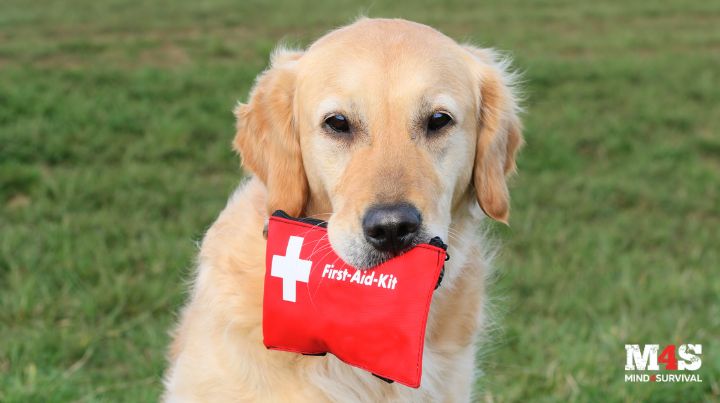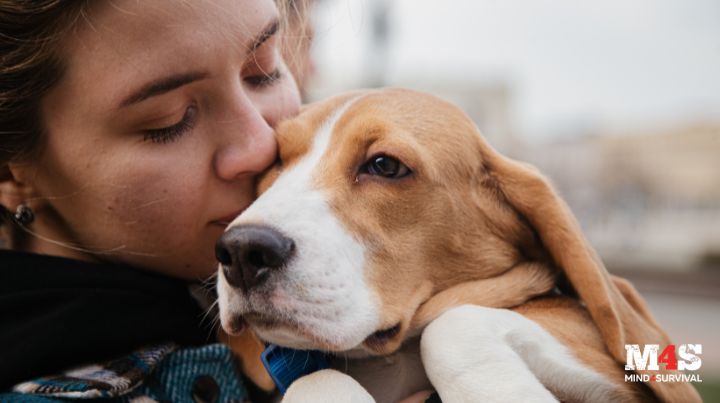Pet Preparedness: A Guide for New Preppers

Pets are family members who provide us with companionship and joy. Unfortunately, when emergencies arise, their safety can often be overlooked. This article will help you prepare for your pets' needs during emergencies by providing practical steps to keep your pets safe and comfortable during emergencies,
Understanding Pet Preparedness
Preparedness isn't just about having supplies. It's about planning and being ready to face unexpected situations calmly. By taking the time to understand your pets' unique needs and anticipating potential challenges, you can significantly reduce stress for both you and your furry companions. Whether it's a natural disaster, a sudden evacuation, or a prolonged power outage, being prepared ensures that you can act swiftly and confidently.
Creating a Pet Emergency Kit
Just as you would prepare an emergency kit for yourself, your pets need one, too. Here's what to include:
- Food and Water: Pack enough food and water for at least three days. Choose non-perishable items like canned food. Don't forget a can opener if needed.
- Medications and Medical Records: In a waterproof container, include any necessary medications your pet requires, along with its medical records.
- First Aid Supplies: A basic first aid kit can be a lifesaver. Include bandages, antiseptic wipes, and any specific items your vet recommends.
- Sanitation Supplies: Pack litter and a small litter box for cats, dog waste bags, and cleaning supplies.
- Comfort Items: Include a blanket, toys, or anything that provides comfort and reduces stress for your pet.
- Identification: Ensure your pet has up-to-date identification tags, and consider a microchip for added security.
- Leash, Harness, and Carrier: These are crucial for safe transportation during an evacuation.
Making a Plan
A solid plan helps to reduce uncertainty and keeps everyone, including your pets, calm during an emergency.
- Evacuation Plan: Know where you can take your pets if you need to evacuate. Identify pet-friendly shelters or hotels and have their contact information handy.
- Stay-In-Place Plan: Sometimes, evacuation isn't possible. In such cases, create a safe space in your home where you and your pets can stay comfortably.
- Communication Plan: Keep a list of emergency contacts, including your vet, local animal shelters, and nearby friends or family who can assist.

Training and Preparation
Preparedness involves training your pets for different scenarios.
- Crate Training: Ensure your pet is comfortable in a crate, as it may be necessary for safe transportation or sheltering.
- Basic Commands: Teach your pet basic commands like sit, stay, and come. This can help keep them safe in unfamiliar or stressful situations.
- Routine Drills: Conduct regular drills with your pets to familiarize them with your emergency plan.
Special Considerations
Each pet is unique and may have specific needs.
- Small Pets: For pets like birds, rabbits, or reptiles, ensure their cages are secure and consider how you'll transport them safely.
- Large Animals: If you have large animals like horses, plan for their transportation and have a location where they can be sheltered.
- Special Needs Pets: If your pet has special needs, make sure you have extra supplies and a plan to accommodate them.
Emotional Preparedness
Emergencies can be stressful for both you and your pets. Here's how to manage the emotional aspects:
- Stay Calm: Pets pick up on our emotions, so staying calm can help keep your pets calm, too.
- Comforting Routine: Try to maintain your pet's routine as much as possible. Familiar activities can provide comfort.
Networking and Support
Having a network can make a big difference in an emergency.
- Pet Community: Join local or online pet communities where you can share tips and support each other.
- Buddy System: Pair up with a neighbor or friend to help each other with pet care during emergencies.
Pet-Specific Preparedness Tips
Different types of pets may require unique considerations. Here are a few tips for various animals:
- Dogs: Ensure you have a sturdy leash and harness. Dogs can become anxious during emergencies, so having their favorite toy or blanket can be comforting.
- Cats: Cats can be particularly stressed during changes. Keep familiar bedding and include a calming spray in your emergency kit.
- Birds: Birds are sensitive to smoke and gases. Cover their cage with a thin cloth for protection and reduce their stress with familiar items.
- Reptiles: Reptiles need special care. Pack a heat source and ensure their habitat is secure for transport.
Pet Safety in Different Scenarios
- Natural Disasters: Your approach may differ depending on the type of natural disaster. For hurricanes, have a sturdy crate and supplies ready. For earthquakes, create a safe spot where pets can hide.
- House Fires: Install pet alert window stickers to notify firefighters of pets' presence. Have an evacuation plan that includes your pets.
- Evacuations: Keep a go-bag for your pet near your own. Practice loading pets into carriers and vehicles so they are familiar with the process.
Long-Term Preparedness
While short-term preparedness is crucial, consider long-term strategies as well.
- Sustainable Supplies: Stock up on supplies that have a long shelf life. Rotate them regularly to ensure freshness.
- Pet Insurance: Consider getting pet insurance that covers emergencies. This can be invaluable if your pet needs medical care during a crisis.
- Backup Caregivers: Identify friends or family members who can care for your pets if you cannot. Provide them with keys and emergency instructions.
The Bottom Line on Pet Preparedness
What are your thoughts on pet preparedness? Do you have some tips and tricks to help others?
Additional Resources:
- What You Need to Know About Prepper Dog Training
- California Office of Emergency Services | Pet Preparedness
Stay safe,

Related Articles
FREE Guide
Read the Best Seller
Join Mind4Survival
Stay informed by joining the Mind4Survival! 100% Secure! 0% Spam!
Affiliate Disclosure...
Mind4Survival is a free, reader-supported information resource. If you make a purchase through our link, we may, at no cost to you, receive an affiliate commission.
Do You Want To Be Ready No Matter What?

Download our free 39-page guide with interactive, 7-Day Emergency Kit Checklist and take the first step toward real preparedness.
- Know exactly where to start.
- Save time and money.
- How-to build a complete Basic Emergency Kit.
- Level up your safety and security.
Join Mind4Survival
Stay informed by joining the Mind4Survival! 100% Secure! 0% Spam!








